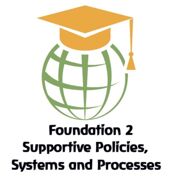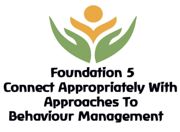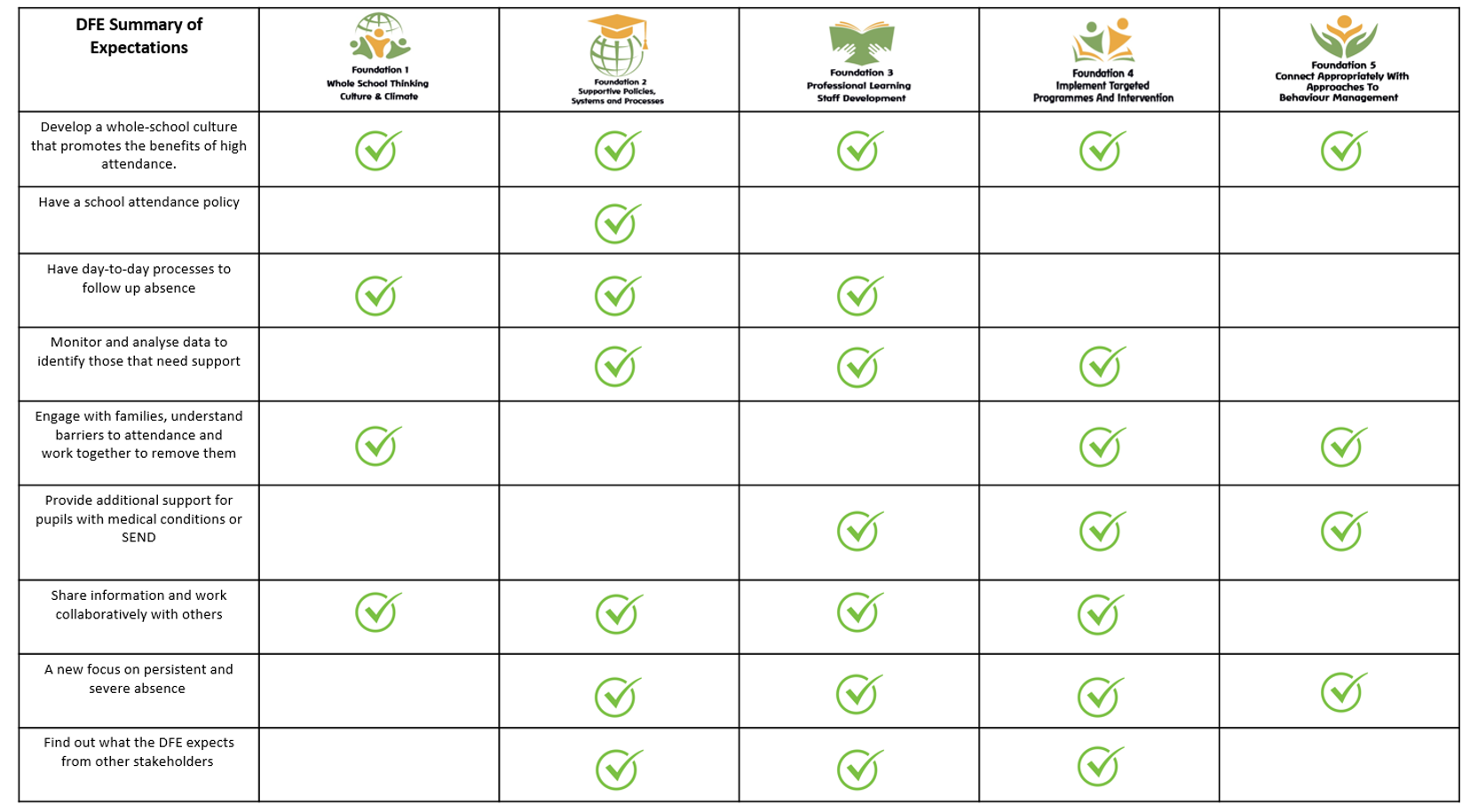- Home
- Parents
- Attendance
Attendance
The Strategic Approach
Topcliffe Academy adopts the 5 Foundations of Effective Attendance Practice framework, this is modelled on the work of Professor Katherine Weare. The emphasis is on developing a school culture and climate which builds a sense of connectedness and belonging to ensure all children can attend school and thrive. The approach ensures we prioritise building solid working relationships with children / parents prior to any escalation. The staged approach ensures we identify triggers early that can lead to poor attendance issues such as; mental health issues, lack of trust, communication and relationship breakdowns and the possible lack of networking opportunities both internal (in-school) and external (external agencies).
Aims
- Increase school Attendance and reduce Persistent Absence to meet set targets.
- Ensure Attendance is well managed within the school, with the appropriate level of resources allocated.
- Enable the school to make informed use of Attendance data to target interventions appropriately, focusing on the key demographic groups highlighted in the 2022 DFE paper.
Objectives
- To create an ethos in which good Attendance is recognised as the norm and every child / young person aims for excellent attendance;
- To ensure Attendance and Punctuality is a key priority:
- To set achievable targets to improve key demographic groups and individual children’s Attendance and PA.
- To embed the 5 Foundations of Effective Attendance Practice framework and Key Performance Indicators aligned to the action plan.
- To develop a systematic approach to gathering and analysing relevant attendance data – proactively implementing targeted support programmes to remove barriers regarding school attendance.
- To develop effective partnership with external agencies and reviewing their impact.
5 Foundations of Effective Attendance Practice





Foundation 1 - The school has a fully embedded ethos in which excellent school attendance is expected, developed and nurtured. An escalated approach ensures the school has a deeply embedded and consistent whole school approach to improving attendance.
Foundation 2 - The approach to improving attendance is built on solid policies, systems and processes; this ensures sustainable and continuous improvement drives practice. Succession planning is built around an effective systems leadership model - rather than that of an individual Attendance Leader. The Attendance Policy drives school practice, it is deeply embedded in daily practise and ensures the school sets, and maintains, high expectations to improve the culture of attendance.
Foundation 3 - The school prioritises developing a fully engaged team of attendance experts; with a shared vision and core purpose. Through this development the Attendance Leader will raise the status of attendance and ensure improved attendance is both sustained and continuous. CPD will support staff at all levels to fully understand their role in supporting attendance. The development of external partnerships will support attendance improvements through a multi-disciplinary approach for identified children and families.
Foundation 4 - Data information and analysis direct resources proactively towards key demographic groups and identified individuals. The expert use of data analysis informs decision making at all levels. A rigorous and effective attendance cycle ensures the Attendance Leader not only captures key information but also further understands the ‘deeper roots’ that creates barriers regarding attendance to school.
Foundation 5 - Connecting and belonging drives the school approach to supporting attendance - this is deeply embedded in an evidence-based approach. The school has effective routines in place that are followed by staff. Staff at all levels within the school understand the 'deeper roots' regarding poor attendance and this is supported through a systematic approach. The school has developed, and embedded, an effective rewards system to further drive attendance improvements and celebrate success.
DFE: Working Together To Improve Attendance 2022.
From September 2022 the DFE: Working Together To Improve Attendance paper will replace all previous guidance on school attendance except for statutory guidance for parental responsibility measures. The Secretary of State has committed to it becoming statutory when parliamentary time allows (this will be no sooner than September 2023).
The table below identifies how the 5 Foundations of Effective Practice will underpin the DFE 2022 paper. 
We expect all children on roll to attend every day as long as they are fit and healthy enough to do so. We encourage the children to attend, and we put in place appropriate procedures. We believe that the most important factor in promoting good attendance is the development of positive attitudes towards school. We strive to make our school a happy and rewarding experience for all children.
Our overall attendance target is 96%.
Topcliffe Primary School is working in partnership with parents to improve school attendance. We would like to congratulate the many parents who make sure their children attend school regularly.
It is a parent’s legal responsibility to ensure their children receive appropriate education. Failing to send your child to school regularly without good reason is a criminal offence.
Absence can only be authorised by the Head Teacher, within the boundaries set by the Education (Pupil Registrations) (England) Regulations 2006.
Please remember that parental illness, going shopping, visiting family, truancy, not wanting to go to school, alleged bullying, (speak to school immediately to resolve the issue), are not acceptable reasons to be absent. All of these will be recorded as unauthorised absence, including if your child arrives at school after the close of registration. Leave in term time will only be authorised in exceptional circumstances.
Legal action that may be taken include:
- Issuing penalty notices: Each parent receives a penalty notice for each child who has unauthorised absence. The penalty is £60 or £120 depending on how soon payment is made. So, if there are two parents and two children the total penalties could be up to £480. Failure to pay may result in prosecution.
- Taking parents to court for unauthorised absence: Education Act 1996 Section 444(1) – court can fine each parent up to £1000 per child, order payment of prosecution costs and/or impose a Parenting Order.
- Taking parents to court for persistent unauthorised absence: Education Act 1996 Section 444(1A) – court can fine each parent up to £2,500 per child, order payment of the prosecution costs, impose a Parenting Order and/or sentence a period of imprisonment of up to 3 months.
Being taken to court could result in you having a criminal record.
PUNCTUALITY

LEAVE IN TERM TIME – LEGAL GUIDANCE FOR PARENTS/ CARERS
It is essential for children to be in school regularly to benefit fully from their educational opportunities. Good attendance will ensure that children can reach their full potential. To achieve this, children need to attend school every day. We are sure you would not jeopardise your children’s academic progress by taking them away during term time.
The importance of school attendance is such the law has now changed and Head teachers may now only grant leave in term time where the circumstances are exceptional. This is in line with Birmingham Local Authority’s ‘Leave in term Time Guidance’ and the 2013 Amendment to the Education (Pupil Registration) (England) Regulations.
For example:
- death of parent/carer or sibling of the pupil
- life threatening or critical illness of parent or sibling of the pupil
- parent/carer recuperation and convalescence from critical illness or surgery (leave request to be made within 6 months of recovery and medical evidence required)
Family emergencies need careful consideration. It is not always in the best interest of the child; nor appropriate for them to miss school for family emergencies that are being dealt with by adult family members. Being at school, friendships and support from staff can provide children with stability and care during difficult times. The routine of school can provide a safe and familiar background during times of uncertainty.
If you have exceptional circumstances which have lead you to request leave in term time for your child/ren, please complete the required form, which you can obtain from School. The Head Teacher will then make a decision on whether or not the leave can be lawfully authorised and will do so only if there is a genuine, exceptional and urgent reason for a child to be absent during term time.
If a child is taken out of school without the Head Teachers authorisation, it will be recorded as unauthorised absence. This may lead to the issuing of a penalty notice and legal action being taken.
Section 23(1) Anti-Social Behaviour Act 2007:
Penalty notices may be issued to the parent of pupils who have unauthorised absence from school. The amount of the penalty is £60.
- If this is not paid within 21 days the amount rises to £120.
- If not paid within 28 days the Local Authority will prosecute under section 444(1) unless it comes to our attention that the penalty notice had been issued in error.
Section 444(1) Education Act 1996:
“If you are the parent of a child of compulsory school age who fails to attend school regularly, you are guilty of an offence.”
The court can fine each parent up to £1,000 per child, order payment of the prosecution costs and/or make a Parenting Order.
Please note that:
- penalties and prosecutions are in respect of each parent for each child.
- ‘Parent’ includes any person who is not a parent of the child but who has parental responsibility for the child (and applies whether or not that person lives with the child) or who has care of him/her.
These prosecutions are criminal proceedings and could result in you having a criminal record.
Attendance Newsletters





